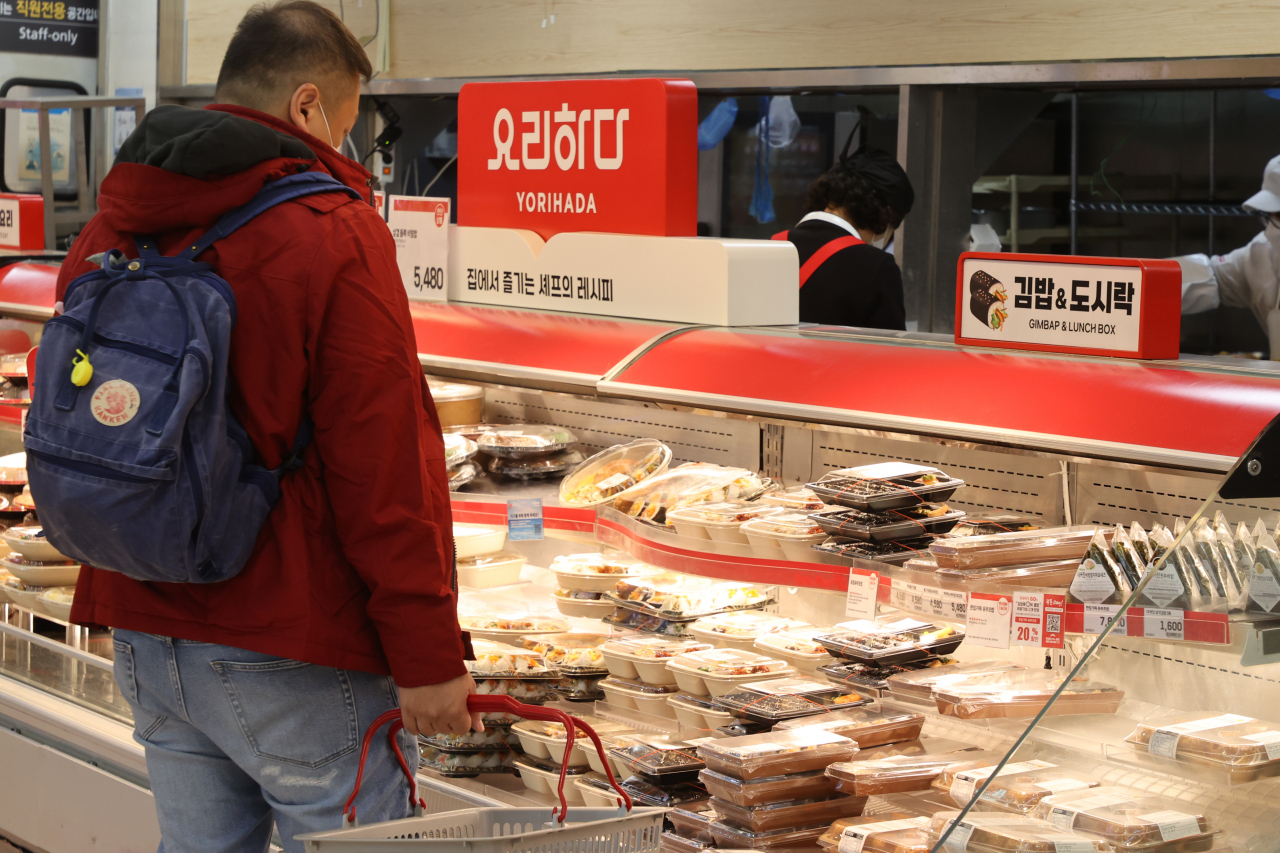 |
A person shops for groceries in a supermarket. (Yonhap) |
South Korean food companies reported robust sales last year, but high raw material prices weighed down their profit growth.
In 2022, Korean food companies Lotte Confectionery, SPC Samlip, Ottogi and Nongshim newly joined the short list of Korean food companies who posted annual sales of 3 trillion won ($2.3 billion) or more -- a feat achieved by only four Korean food companies so far.
The top four food companies leading the country in terms of sales, which include CJ CheilJedang, Dongwon F&B, Daesang and Hyundai Green Food, also enjoyed a bumper year in sales last year.
While average sales growth achieved by the eight food firms stood at 15.3 percent, their profits lagged in comparison.
"Korean food companies recorded an average of 3 percent increase in operating profits last year, which is not a lot," an industry insider told The Korea Herald on condition of anonymity.
In fact, CJ CheilJedang, the country's top food manufacturer by sales, saw a 1.7 percent increase in operating profits, which was 24 percent below the stock market's estimate.
Lotte Confectionery, whose annual sales set a company record in 2022, saw their operating profits fall by 6.3 percent.
Experts say that the price hike initiated by a slew of food companies in light of soaring raw material prices caused by the Russia-Ukraine war may have contributed to the discrepancy between the Korean food companies' sales and their actual profits.
"The food industry raised its prices by 10 percent on average last year, but the prices of raw materials such as wheat flour, palm oil, and packaging materials are soaring by almost 50 percent. Therefore, the cost burden for food companies remain," the industry insider said.
According to the insider, because the costs for materials grew, the companies' overall sales grew, but no significant amount of profit was reaped by them.
According to the United Nations Food and Agriculture Organization, the food price index hit an all-time high of 159.7 points in March last year.
UNFAO largely attributed the rise in food material prices to the war between Russia and Ukraine, the major grain exporters.
Due to such a rise in raw material prices, firms across various food industries raised product prices.
Nongshim hiked the price of its snacks twice last year, while Paris Baguette, a bakery chain run by SPC Group, raised bread and cake prices by 6.6 percent on average in January last year. CJ CheilJedang also raised the overall price of processed foods and sauces last year.
Food industry officials explained that the prices weren't raised enough for companies to generate profit.
"There was a government request (to refrain from raising prices), and we couldn't raise our prices as much as we needed to," an official explained.
"The international grain price and won-dollar exchange rate are currently going down, but it still takes months to be reflected in the unit price of imports, so it is unlikely that our prices will be going down anytime soon enough for us to dramatically increase our profits," the official added.